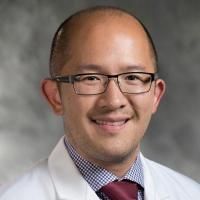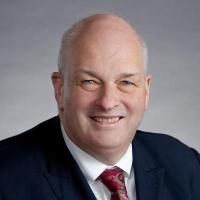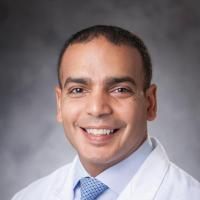Early Experience with Prone Lateral Interbody Fusion in Deformity Correction: A Single-Institution Experience.
Date
2024-04
Journal Title
Journal ISSN
Volume Title
Repository Usage Stats
views
downloads
Citation Stats
Abstract
Background/Objectives: Lateral spine surgery offers effective minimally invasive deformity correction, but traditional approaches often involve separate anterior, lateral, and posterior procedures. The prone lateral technique streamlines this process by allowing single-position access for lateral and posterior surgery, potentially benefiting from the lordosing effect of prone positioning. While previous studies have compared prone lateral to direct lateral for adult degenerative diseases, this retrospective review focuses on the outcomes of adult deformity patients undergoing prone lateral interbody fusion. Methods: Ten adult patients underwent single-position prone lateral surgery for spine deformity correction, with a mean follow-up of 18 months. Results: Results showed significant improvements: sagittal vertical axis decreased by 2.4 cm, lumbar lordosis increased by 9.1°, pelvic tilt improved by 3.3°, segmental lordosis across the fusion construct increased by 12.2°, and coronal Cobb angle improved by 6.3°. These benefits remained consistent over the follow-up period. Correlational analysis showed a positive association between improvements in PROs and SVA and SL. When compared to hybrid approaches, prone lateral yielded greater improvements in SVA. Conclusions: Prone lateral surgery demonstrated favorable outcomes with reasonable perioperative risks. However, further research comparing this technique with standard minimally invasive lateral approaches, hybrid, and open approaches is warranted for a comprehensive evaluation.
Type
Department
Description
Provenance
Citation
Permalink
Published Version (Please cite this version)
Publication Info
Bartlett, Alyssa M, Christopher F Dibble, David AW Sykes, Peter N Drossopoulos, Timothy Y Wang, Clifford L Crutcher, Khoi D Than, Deb A Bhomwick, et al. (2024). Early Experience with Prone Lateral Interbody Fusion in Deformity Correction: A Single-Institution Experience. Journal of clinical medicine, 13(8). p. 2279. 10.3390/jcm13082279 Retrieved from https://hdl.handle.net/10161/30643.
This is constructed from limited available data and may be imprecise. To cite this article, please review & use the official citation provided by the journal.
Collections
Scholars@Duke

Khoi Duc Than
I chose to pursue neurosurgery as a career because of my fascination with the human nervous system. In medical school, I developed a keen interest in the diseases that afflict the brain and spine and gravitated towards the only field where I could help treat these diseases with my own hands. I focus on disorders of the spine where my first goal is to help patients avoid surgery if at all possible. If surgery is needed, I treat patients using the most advanced minimally invasive techniques available in order to minimize pain, blood loss, and hospital stay, while maximizing recovery, neurologic function, and quality of life. In my free time, I enjoy spending time with my family and friends. I am an avid sports fan and love to eat. I try to stay physically fit by going to the gym and playing ice hockey.

Christopher Ignatius Shaffrey
I have more than 25 years of experience treating patients of all ages with spinal disorders. I have had an interest in the management of spinal disorders since starting my medical education. I performed residencies in both orthopaedic surgery and neurosurgery to gain a comprehensive understanding of the entire range of spinal disorders. My goal has been to find innovative ways to manage the range of spinal conditions, straightforward to complex. I have a focus on managing patients with complex spinal disorders. My patient evaluation and management philosophy is to provide engaged, compassionate care that focuses on providing the simplest and least aggressive treatment option for a particular condition. In many cases, non-operative treatment options exist to improve a patient’s symptoms. I have been actively engaged in clinical research to find the best ways to manage spinal disorders in order to achieve better results with fewer complications.

Muhammad Abd-El-Barr
As a Neurosurgeon with fellowship training in Spine Surgery, I have dedicated my professional life to treating patients with spine disorders. These include spinal stenosis, spondylolisthesis, scoliosis, herniated discs and spine tumors. I incorporate minimally-invasive spine (MIS) techniques whenever appropriate to minimize pain and length of stay, yet not compromise on achieving the goals of surgery, which is ultimately to get you back to the quality of life you once enjoyed. I was drawn to medicine and neurosurgery for the unique ability to incorporate the latest in technology and neuroscience to making patients better. I will treat you and your loved ones with the same kind of care I would want my loved ones to be treated with. In addition to my clinical practice, I will be working with Duke Bioengineers and Neurobiologists on important basic and translational questions surrounding spinal cord injuries (SCI), which we hope to bring to clinical relevance.
Unless otherwise indicated, scholarly articles published by Duke faculty members are made available here with a CC-BY-NC (Creative Commons Attribution Non-Commercial) license, as enabled by the Duke Open Access Policy. If you wish to use the materials in ways not already permitted under CC-BY-NC, please consult the copyright owner. Other materials are made available here through the author’s grant of a non-exclusive license to make their work openly accessible.
